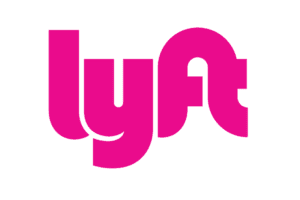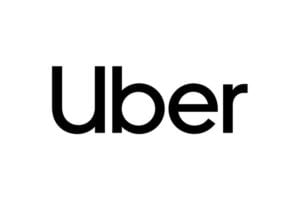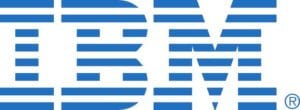Products

Who We Serve
May 2, 2019
In a post last month, we took a quick tour of the inroads that Amazon and Apple are making into mainstream healthcare. In a recent survey of its 1500 members, the Healthcare Executives Group reported that these moves are making many traditional healthcare leaders nervous, noting that 32 percent of respondents anticipate that “disrupting current business models” will greatly impact healthcare in 2019. Amazon and Apple aren’t alone on this track; others including Google, Lyft, Uber, and IBM are also investing in innovative new ventures to take advantage of our lucrative industry. Let’s take a look at their latest initiatives:
 Google:
Google:
The AI / Data Analytics Commercialization Initiative
With at least 80 percent of internet users searching online for health-related information, including 87 percent of 14- to 22-year-olds, it should be no surprise that Google is emphasizing healthcare in its growth plans. Two-thirds of 14- to 22-year-olds responding to a survey by Hopelab and Wellbeing Trust say they have used a mobile health app to track fitness, diet, sleep patterns, medications and more. Many have connected with health providers through online messaging, apps, texting and video chat.
Google also has its eye on our 70+ million elderly, currently about 40% of market share. Over 82 percent of baby boomers search online for information. [McKinsey] One of the top three reasons that seniors use the Internet is to search for medical/healthcare information (66 percent). They also use email (95 percent) and do product research (66 percent), according to Google.
Perhaps the most significant recent step Google has made into healthcare is its hiring of former Geisinger Health CEO David Feinberg to organize what has been a somewhat disjointed set of healthcare-focused initiatives. These include Google Search, Nest, Verily, Calico, DeepMind, Google’s cloud services, Google Fit, and Google Play, all under the umbrella of parent company Alphabet. Feinberg is expected to have a key role in bringing vision and continuity to Alphabet’s healthcare endeavors.
For some time Google Search has offered features such as health cards, symptom search, and a clinical depression questionnaire. Google Fit is an app that offers consumers customized fitness monitoring and coaching, while Google Play currently offers 30,000+ mHealth apps.
Now Alphabet is moving aggressively through Google and Verily to power up healthcare consumerism by harnessing AI and machine learning across healthcare, using the enormous amount of cloud-stored health data to support development of both consumer and physician resources. Ventures include the Google Brain project that uses AI-powered speech recognition and machine learning tools to help doctors automatically fill out EHRs and reduce documentation time. Another is the recent deployment of an AI-enabled app for remote professionals that essentially confirms diabetes-related retinopathy, a leading cause of blindness.
Verily recently announced a new self-learning, self-improving non-profit initiative called OneFifteen that will offer a Learning Healthcare System (LHS) for addiction and rehabilitation. Verily is partnering with Premier Health and Kettering Health Network to develop a specialized campus in Dayton, Ohio with both residential and outpatient facilities. Verily is also partnering with Walgreens on a venture called Onduo, which will offer a “virtual diabetes clinic” to coach patients (initially Walgreens employees and their families) on managing their disease. The partnership has talked about collaborating on multiple projects to improve health outcomes and lower costs. Verily says the partnership with Walgreens will allow the quick introduction of new products and solutions to consumers given the drugstore chain’s thousands of stores.
Verily and GlaxoSmithKline (GSK) have partnered to create Galvani Bioelectronics to help advance the research and development of bioelectronic medicines. GSK’s drug discovery expertise and knowledge of disease are expected to support Verily’s expertise in device development and data analytics for the project.
Nest, another Alphabet initiative, has acquired a health-monitoring startup and indicates there are plans to use its various health-monitoring app technologies in nursing homes. Nest products that are already useful in elder care include apps that let family members check in on loved ones through cameras, and let only specific people into the home through smart locks.
In concert with these initiatives and others, Alphabet announced early this year that Verily had raised $1 billion to support its projects well beyond research, into commercialization. Verily says this funding will be “another landmark in the digital health industry in upcoming years.”

 Lyft and Uber:
Lyft and Uber:
Transportation Initiatives
A recent study notes that patients who don’t arrive for their appointments cost our health system an estimated $150 billion per year, with about 3.6 million patients unable to access needed transportation on time. Lyft and Uber are aggressively working to fix this problem, having built partnerships with insurance companies, hospital systems, and clinics in hopes of providing efficient, non-emergency transport for patients. In a strategic windfall, the Centers for Medicare and Medicaid Services (CMS) announced last April that it would cover non-emergency transport, freeing up hundreds of thousands of dollars for rideshare companies.
Earlier this year Lyft announced an expanded partnership with Medicare Advantage plans for people over 65 with BlueCross BlueShield and Humana. Patients now can access rides to their appointments through Lyft, with rides billed to their insurance plans.
UberHealth, launched in February 2018, has a similar service. It is incorporated in a hospital’s electronic medical record system, so that patients don’t need to have a smartphone to use it; providers can call cars directly. UberHealth has partnered with over 100 health care organizations including MedStar Health, LifeBridge Health, NYU Perlmutter Cancer Center, and Yale New Haven Health.
Early results of these efforts are positive. In one study, patients given a Lyft ride to two California facilities were 18% more punctual and saved the system 39% in transportation costs in the first year and a half. A study of Hennepin Healthcare internal medicine clinics in Minneapolis found a 27% reduction in no-shows. Similar results have been found with Uber; Boston Medical Center reported greater patient satisfaction and $500,000 in transportation savings by using Uber Health.
In the meantime, Lyft is ramping up its Medicare Advantage business with a web-based Concierge feature that enables members without smartphones (half of those over age 65) to request rides. It is also moving into the EHR space, and already has partnered with Allscripts to embed a physician ride order feature into Allscript’s Sunrise EHR, allowing them to integrate with the processes of 2,500 hospitals and 45,000 physician practices, reaching 180,000 physicians and 7 million patients, according to Lyft’s chief business officer David Baga.
 IBM:
IBM:
The Blockchain Initiative
Blockchain is increasingly emerging as the best potential solution to the healthcare industry’s lack of systems interoperability. IBM announced in January that Cigna and Sentara Healthcare have joined a new health utility network that uses blockchain. Aetna, Anthem, HCSC and PNC joined the collaboration to connect the healthcare industry in February. The aim of the network is to convene a “broad ecosystem of healthcare organizations in a highly secure, shared environment with the goal of enabling organizations to build, share and deploy solutions.” The network is turning heads, as other companies like Aetna, Anthem, Health Care Service Corporation (HCSC), and PNC Bank have since joined in. IBM says the companies are all exploring ways that blockchain can be used to address a “range of industry challenges, including promoting efficient claims and payment processing, enabling secure and frictionless healthcare information exchanges, and ways to maintain current and accurate provider directories.”
In the meantime, despite setbacks in IBM Watson’s trajectory, Healthquest’s four-hospital system is using IBM Watson for Clinical Trial Matching. In 2018, the Mayo Clinic reported that the technology demonstrated an 80% increase in clinical trial enrollment. According to Glenn Loomis, CMO at Health Quest, the system allows the organization “to improve patient access to advanced clinical trials by removing the drudgery of manually searching through charts to quickly match patients with the best clinical trials for their condition.”
Finally…good news about AI standardization
Google, IBM, AT&T, and Fitbit have joined up with the Consumer Technology Association (CTA) to develop long-needed standards and recommend best practices around the use of artificial intelligence in healthcare.
According to FierceHealthcare, “More than 30 organizations, including vendors and industry groups like AdvaMed and the American Telemedicine Association, have joined the effort to drive industry consensus and standardization on definitions and characteristics of healthcare AI…The effort will serve as a platform for stakeholders across the tech and health care industry to create common terminology and best practices for management and oversight of data.”
______________________________________________
Stay tuned as we attempt to keep up with this interesting period of potential healthcare innovations by non-traditional, highly moneyed commercial players. What projects will succeed…which will be a bust? At this early juncture, it’s arguably too soon to predict. What is certain is that, as the largest industry in the nation and one that is becoming increasingly tech-dependent, the healthcare sector is proving to be irresistible to some of our most successful tech pioneers.
Phoenix Health Systems provides world-class hospital IT outsourcing services, including security and other IT consulting — and vendor-independent 24 X 7 X 365 onshore Service Desk outsourcing. Please contact us for more information.